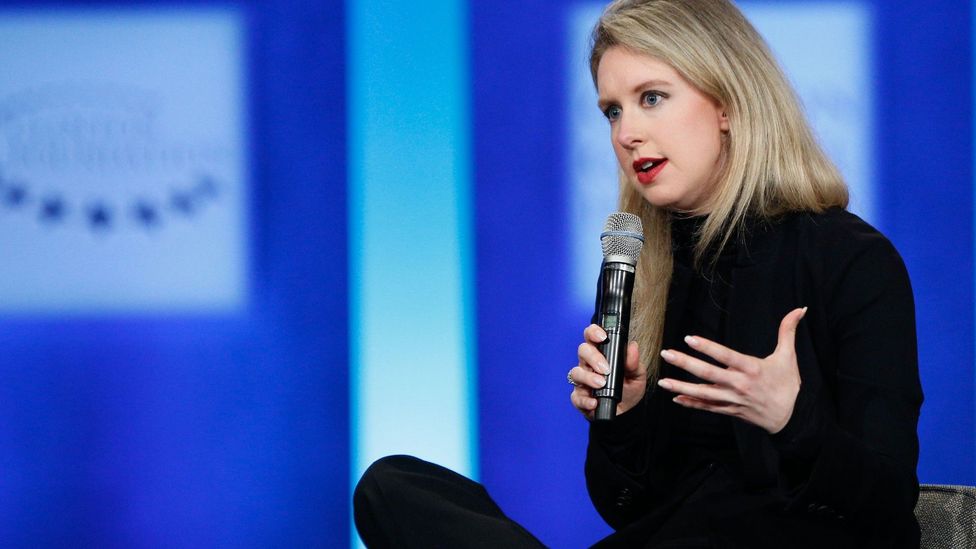More women than ever before are running the world’s biggest companies, but research shows that the rise in representation has been accompanied by a fall in trust in female leaders. It paints a grim picture for those who manage to break through the metaphorical glass ceiling.
In November, new data from The Reykjavik Index for Leadership, an annual survey that compares how men and women are viewed in terms of their suitability for positions of power, showed trust in women leaders has fallen markedly throughout the past year. It’s the first decline in this measure since Kantar Public, an evidence and advisory public-policy business, started collecting data in 2018.
Across the G7 nations, which include Canada, France, Germany, Italy, Japan, the UK and the US, fewer than half of respondents (47%) said they were “‘very comfortable” having a woman as CEO of a major company in their country, down from 54% a year earlier. Men were significantly more likely than women to be critical of a female leader, and one in 10 respondents said that they would explicitly not be comfortable with a female CEO.
Responses to questions about female political leaders followed a similar pattern: just 45% of those questioned in the G7 said they were “very comfortable” with a woman at the head of their government, down from 52% in 2021.
Though many people are disheartened, academics and experts on leadership and gender are generally not surprised by the research findings, and have different theories on why trust in women leaders has declined. They all warn, however, that fixing the trust gap is critical to eradicating bias that permeates every level of companies and institutions.
Traditional status quo
Explanations for diminishing trust in female CEOs vary, but many follow common themes. Some experts argue that institutional misogyny and gender bias has been supercharged by both the recent political landscape and the pandemic.
Danna Greenberg, a professor of organisational behaviour at Babson College in Massachusetts, US, believes women leaving the paid labour market and picking up the bulk of childcare and other domestic chores during Covid-19 resulted in a “hardening of old traditional assumptions” about the role of women at work and in the home. This, Greenberg believes, has had a knock-on effect, making “bias against women more socially acceptable”.

She also highlights humans’ natural tendency to demonstrate a preference for the familiar, a phenomenon psychologists refer to as the mere-exposure effect, or the familiarity principle, which may become more pronounced during times of crisis or uncertainty. “We may be entering a period of economic recession and that means a period of fear,” she says. “Fear ignites us to move towards what we’ve traditionally been taught is safe and secure. And when it comes to leadership, that unfortunately still means men being in charge.”
Indeed, global data from the Kantar Public survey of more than 14,000 people – compiled in partnership with the Reykjavík Global Forum annual conference and the Women Political Leaders network – shows that trust levels in female leaders broadly track the trajectory of major global stock market indices over the past few years: as the S&P 500 and FTSE 100 have sold off markedly, trust in women leaders has slumped, too.
In certain countries, some experts believe, there may also be political reason for attitudes towards female leaders changing. “If you’re going to have a national conversation about whether women should even be allowed to take control of their own healthcare, then what do you expect?” says Michelle Harrison, global CEO of Kantar Public, referring to the US Supreme Court’s June 2022 decision to overturn Roe v Wade. In other words, if something as intimate and private as a woman’s reproductive rights are publicly questioned, that suggests that her autonomy to do anything in life might be an appropriate matter for general debate.
If a powerful leader is acting a certain way, that can also be perceived as an implicit endorsement of certain behaviour, says Greenberg. Former US president Donald Trump’s comments about and behaviours towards women during his term, for example, may well have served to normalise sexism. And that’s a factor that’s potentially been exacerbated by trends across social media. Research shows that the number of references to violent misogyny appearing online has soared over the past five years.
The preponderance of online content that’s misogynistic or encourages violence against women has directly led to a culture of sexism in everyday life, Laura Bates, a British author, campaigner and researcher, wrote in her 2020 book Men who Hate Women. This has real-world consequences for women; in a 2021 paper that focused on the US military community, academics Kyleann Hunter and Emma Jouenne found that social media was largely responsible for spreading misinformation about women’s ability to meet physical standards for combat arms roles as well as the negative impact women were having on these units’ effectiveness.
Fear ignites us to move towards what we’ve traditionally been taught is safe and secure. And when it comes to leadership, that unfortunately still means men being in charge – Danna Greenberg
A 2020 study from the UK charity Hope Not Hate also established the connection between what’s happening on the internet and attitudes in the real world. The study showed that even though younger generations tended to have more progressive views than older ones, half of all young men surveyed said they felt feminism had “gone too far”. Anti-feminism, the researchers concluded, appeals to young men who have grown up online and who might “feel emasculated in an age of changing social norms”.
Echoing this, this year’s Reykjavík Index for Leadership shows that in certain countries, including Japan and Germany, young people actually hold less progressive views than older generations – meaning they might be less likely to trust women leaders, according to the experts.
Part of culture
Another theory for the trust slump is that negative attitudes towards female leaders have been exacerbated simply because more women have moved into positions of power, which has upset the traditional status quo.
“Historically, the workplace and governments have been largely dominated by men, and cultures inadvertently have been created for men. This means that any exception to the norm can be perceived with distrust,” says Allyson Zimmermann, executive director for Europe, Middle East and Africa at Catalyst, a global non-profit that works with CEOs and leading companies to build workplaces that work for women. Research conducted by the Pew Research Center in 2020, for example, shows that around one in three American males believes that the gains women have made towards society becoming more gender-equal have come at the expense of men.
Elizabeth Holmes (Credit: Getty)
Separate research from Cecilia Hyunjung Mo, an associate professor in political science at the University of California, Berkeley, echoes this. “If you’ve been accustomed to being at the top – if that’s what you’ve known, how you’ve been socialised, and what history has taught you – then it is not unreasonable for you to start assuming that, ‘We’re supposed to be at the top’,” she said in a recent interview with UC Berkley’s online publication. “As a consequence, if you start believing that there are other groups surpassing you, doing better than you think your group is doing, then it makes sense that you start feeling discontent.”
Julie Castro Abrams, CEO and chair of How Women Lead, a US network of more than 13,000 women dedicated to promoting diverse voices and leadership, believes another factor is how society responds to women leaders. “We love to villainise women. It’s part of our culture,” she says. “When you get more women into leadership, that behaviour starts to come out, because a woman in leadership upsets the accepted narrative that we’ve all learned… And people love to see women fail because a woman succeeding doesn’t fit into the narrative we’ve all been taught.”
Castro also explains that when a high-profile woman is perceived to have failed, she is frequently pointed to as a reason why women shouldn’t be in leadership positions. When Hillary Clinton lost the presidential election to Donald Trump, many media outlets asked whether America was really ready for a female president. One study from 2016 by the US Rockefeller Foundation, a philanthropic research organisation, showed when a female CEO’s company is in trouble, news stories are much more likely to blame her as the source of the problem than if a male CEO’s company is in trouble.
As more women successfully ascend the ranks, experts say it’s reasonable to expect more criticism of their personal shortcomings – consider the explosion of publicity around disgraced Theranos founder Elizabeth Holmes, recently jailed for misleading the public about the effectiveness of her blood-testing technology. Some commentators have asked why other tech start-up CEOs accused of wrongdoing haven’t faced similar treatment; female entrepreneurs meanwhile say they have to convince investors they are not like her.
When a high-profile woman is perceived to have failed, she is frequently pointed to as a reason why women shouldn’t be in leadership positions
Research has also shown that women are more likely to be picked for top corporate roles when a company is in turmoil or when the risk of failure is particularly high – a phenomenon known as the ‘glass cliff’. In October, Bed Bath & Beyond appointed a female CEO amid a stock price plummet. Karen Bass recently became mayor of Los Angeles as the city grapples with a brutal homeless crisis and corruption. Perhaps most notably, the UK’s briefly serving Prime Minister Liz Truss – appointed amid shaky economic conditions and political upheaval – plunged over the glass cliff on a global stage. Each case of failure potentially further dents trust in women leaders.
Few reasons for optimism
Across many cultures and workplaces, gendered bias is entrenched and therefore extremely stubborn, meaning that a quick solution to stamping it out will never exist. Considering the slow but steady rise in female representation at the top of companies, however, it might be reasonable to assume that trust in women leaders would reliably mirror that gradual but undeniable trend.
The latest data is therefore particularly depressing, says Kantar Public’s Michelle Harrison. “I’m really struggling to find reasons to be optimistic,” she says.
Others agree that the research is a gut punch, and that it’s too early to tell whether this is a temporary backlash to progress – a case of two steps forward, one step back – or a more sustained reversal of any progress previously achieved toward gender equity. The evolution of the political landscape, the economy and social factors, say experts, will likely determine the trajectory of trust in the years ahead.
One critical component to remember, maintains Harrison, is that this is not about the role of individuals of one particular gender. “This is not about fixing women and it’s not about fixing men,” she says, “but about changing deep-seated norms within our society. And right now, those aren’t moving.”









